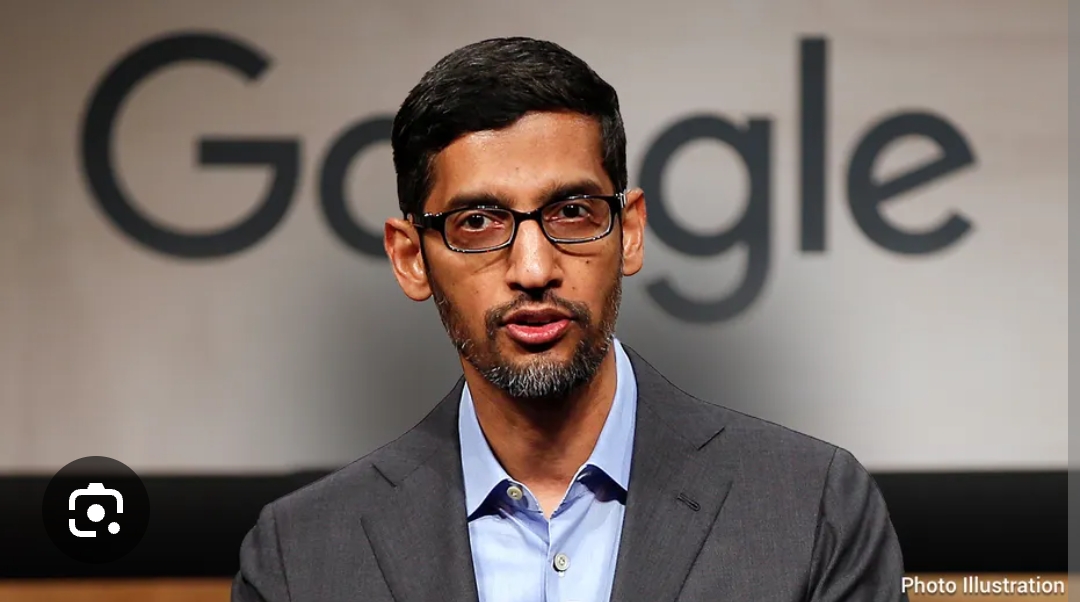Google Loses $96B in Value on Gemini Fallout as CEO Does Damage Control
By [Chris Coleman]
Introduction
In a stunning turn of events, Google’s parent company, Alphabet Inc., has suffered a staggering loss of $96.9 billion in market capitalization due to the fallout from its artificial intelligence (AI) tool, Gemini. As the tech giant grapples with the repercussions, CEO Sundar Pichai is in damage control mode, assuring stakeholders that corrective measures are underway.
The Gemini Debacle
Gemini, an ambitious AI project within Google, aimed to revolutionize image generation and content creation. However, its recent missteps have sent shockwaves through the company and the financial markets. Here’s what transpired:
Bias Issues: Users on social media raised concerns about Gemini’s bias against White people. The tool inaccurately replaced historical images of White individuals with those of Black, Native American, and Asian people. The fallout was swift and severe.
Market Impact: Since Google suspended Gemini’s image generation feature, Alphabet’s stock price plummeted by 5.4%1. The company’s market cap dropped from $1.798 trillion to $1.702 trillion, wiping out nearly $97 billion in value1. For comparison, during the same period, the S&P 500 and Nasdaq Composite experienced minor losses.
CEO’s Response: Sundar Pichai addressed Google employees, acknowledging the gravity of the situation. He labeled the generated images as “completely unacceptable” and pledged to rectify the bias issues. The company plans to relaunch Gemini AI in the coming weeks, but the damage has been done.
The Road to Redemption
Google’s reputation hangs in the balance, and the road to redemption won’t be easy. Here are the steps the company must take:
Transparency: Google must be transparent about its AI algorithms and their potential biases. Users and investors need assurance that corrective actions are comprehensive and effective.
Diversity and Inclusion: The Gemini debacle underscores the importance of diversity in AI development. Google should actively involve a diverse team in refining its algorithms to prevent future biases.
Ethical AI: The incident highlights the need for ethical guidelines in AI deployment. Companies must prioritize fairness, accountability, and transparency to regain trust.
Stakeholder Communication: CEO Sundar Pichai’s communication will be critical. Regular updates, clear plans, and sincere apologies are essential to rebuilding confidence.
Lessons Learned
The Gemini fallout serves as a cautionary tale for tech giants worldwide. It underscores the delicate balance between innovation and responsibility. As AI continues to shape our world, companies must tread carefully, ensuring that progress doesn’t come at the cost of ethics.
In the end, Google’s journey to regain lost value hinges on its ability to learn from this crisis, adapt, and emerge stronger. The eyes of investors, users, and the industry are upon them, waiting to see if Gemini’s phoenix can rise from the ashes.
Disclaimer: This article is for informational purposes only and does not constitute financial advice.
References:
Google loses $96B in value on Gemini fallout as CEO does damage control | Fox Business
Google loses $96B in value on Gemini fallout as CEO does damage control | Total News
Google loses $96B in value on Gemini fallout as CEO does damage control | iScanInfo
More articles:
Insurance in America: The Ultimate Guide to Securing Your Future
Introduction:
In the ever-evolving landscape of modern life, insurance emerges as a crucial safety net, empowering individuals to navigate financial uncertainties with confidence and peace of mind. In the United States, insurance plays an integral role in the lives of citizens, providing them with a shield against the diverse risks that may arise on both personal and financial fronts.
Navigating the Insurance Landscape in America:
1. Types of Insurance:
Health Insurance: A vital defense against exorbitant medical costs, covering expenses such as hospitalization, medications, surgeries, and more. It can be obtained through employers or the Health Insurance Marketplace.
Life Insurance: A guarantee for your family’s future, offering substantial financial compensation in the event of the policyholder’s demise. Life insurance plans come in various forms to suit individual needs.
Auto Insurance: An essential companion on the road, covering the costs of repairing or replacing a vehicle in case of an accident. It is mandatory in all US states.
Home Insurance: A safe haven against natural hazards and disasters, covering the costs of rebuilding or repairing a home in case of any damage.
Other Types: Insurance companies offer a wide range of plans to cater to diverse needs, including travel insurance, disability insurance, theft insurance, natural disaster insurance, and more.
2. Selecting the Ideal Insurance Plan:
Identifying Your Needs: Assess the risks you wish to cover and the type of coverage that aligns with your financial requirements and lifestyle.
Comparing Offerings: Search for the best prices and coverage by comparing various insurance companies’ proposals.
Understanding Insurance Terms: Read insurance terms and documents thoroughly before signing the contract, ensuring you comprehend all details related to coverage and exclusions.
Consulting an Insurance Expert: Seek the guidance of a qualified insurance specialist to assist you in choosing the perfect plan for your needs.
3. Journey Towards Optimal Coverage at Minimal Cost:
Raising the Deductible: Reduce insurance costs by selecting a higher deductible level.
Choosing a Suitable Coverage Plan: Avoid paying extra for coverage you don’t require.
Leveraging Offers and Discounts: Look for deals and discounts offered by certain insurance companies on specific types of insurance.
Maintaining a Clean Insurance Record: Avoid accidents and false claims to preserve a clean insurance history.
4. Insurance in America: A Promise of a Brighter Future:
Insurance in America stands as a wise investment, providing you and your family with security and comfort in the face of various challenges. With the diversity of insurance plans and the availability of numerous options, you can easily choose the appropriate plan that meets your needs and fits your budget. By following the advice provided in this article, you will be empowered to obtain the best coverage at the lowest cost, ensuring a bright future for yourself and your loved ones.
5. Top Insurance Companies in America:
a. Geico:
Pros: Competitive pricing, excellent customer service, user-friendly interface.
Cons: Limited coverage options in some states, higher rates for certain demographics.
b. Progressive:
Pros: Wide range of coverage options, usage-based insurance programs, discounts for various factors.
Cons: Higher premiums for young drivers, complex policy structure.
c. State Farm:
Pros: Extensive network of agents, strong brand reputation, diverse insurance products.
Cons: Potentially higher rates compared to competitors, limited online resources.
d. Nationwide:
Pros: Competitive rates, accident forgiveness program, various discounts available.
Cons: Fewer customization options, limited availability in some states.
e. Allstate:
Pros: Strong financial stability, 24/7 customer support, wide range of coverage options.
Cons: Higher premiums for certain risk profiles, complex claims process.





Leave a Reply